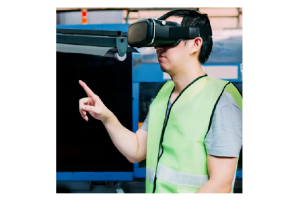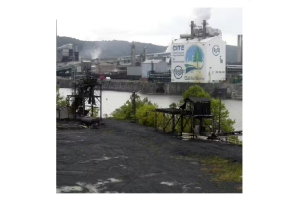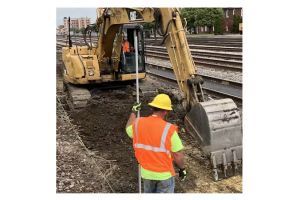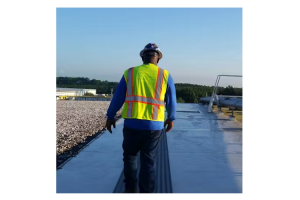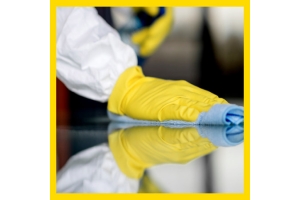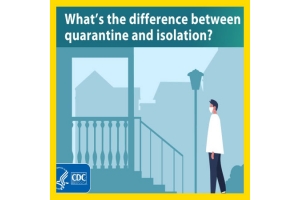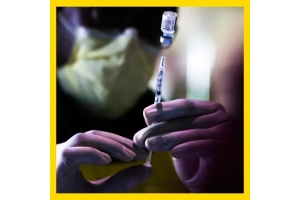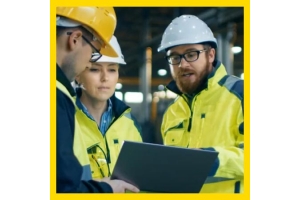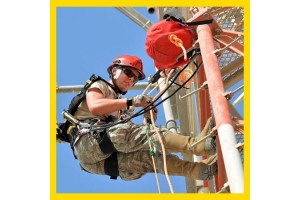Currency
May 31, 2020
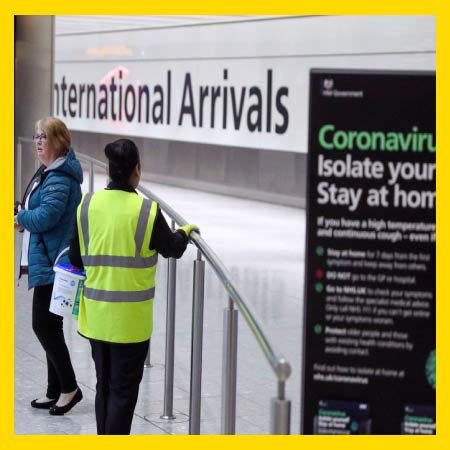
In these soul-trying times of COVID-19, it’s good to have something familiar that reminds us of those not-so-long-ago days when the world didn’t revolve around hand sanitizers, face masks and social distancing. Most of the customary harbingers of spring and early summer have been shelved or postponed this year, including religious services, graduation ceremonies, blockbuster movies, major sporting events… it feels so unnervingly weird to me to not have MLB box scores from the previous night’s games to obsess over every morning.
So yes, it is somewhat comforting when annual events are still going forward, even if they were never in-person events, as an acknowledgment that the more things change, the more they just take on a slightly different appearance.
Case in point: The annual reveal of the country’s “Dirty Dozen” employers, presented by the National Council for Occupational Safety and Health (National COSH). This year’s “Bottom 12” list was tagged as a “Special Coronavirus Edition,” as it focuses on employers who seem to have done the least to protect their workers against the spread of COVID-19 (although some on the list made it due to a pattern of gross negligence that predates the pandemic). Included on this year’s list are such well-known consumer-facing retailers as Chipotle, Hard Rock Café, Trader Joe’s and Victoria’s Secret, as well as the American Hospital Association and the National Restaurant Association.
“Our current public health crisis has demonstrated, more clearly than ever, that worker health cannot be separated from public health,” observes Marcy Goldstein-Gelb, co-executive director of National COSH. “Infectious diseases and other unsafe working conditions do not stay put in any one workplace or building, but can spread to families, communities and the public at large.”
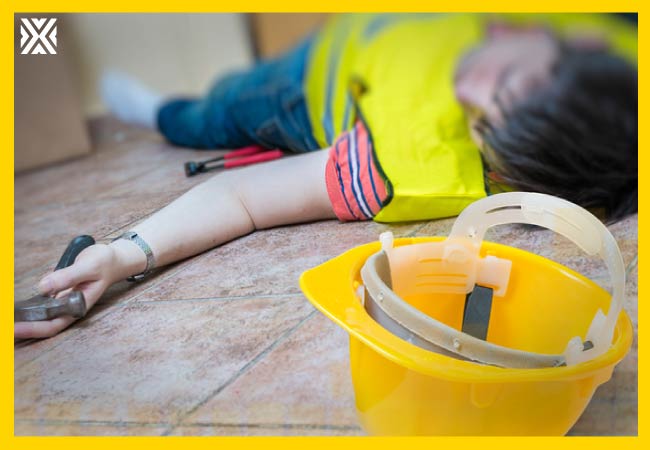
EHS Today readers will perhaps remember how, in our previous coverage of the “Dirty Dozen,” we’ve pointed out that National COSH has a specific agenda as an advocacy group to promote and strengthen labor unions . The National COSH list doesn’t actually quantify the number of incidents or fatalities at these organizations, nor do they even weigh how dangerous any given company might be compared to others in its industry sector. What the list does do (or attempts to do, at any rate) is point the finger at employers who seem to be focused more on keeping the lights on than on protecting their workers.
The list, let’s face it, is meant to be provocative. You might be wondering, for instance, how in the world the American Hospital Association (AHA), representing the healthcare systems who are doing so much to help fight COVID-19, could be on a “Dirty Dozen” list? According to National COSH, the AHA has been resisting the institution of stricter protection protocols that would keep their own employees safe. Of course, that’s not entirely accurate—when you drill down to the specifics, it reads more like a classic “management vs labor” dispute between cash-strapped hospitals that claim the PPE they’ve already purchased provides adequate protection for their staffs and the nurses’ and service industries’ unions that say their members are at risk of contracting COVID themselves if they’re not provided better PPE. But there’s no denying that AHA ends up looking like penny-pinchers during a time when their people are putting themselves in harm’s way, every day.
One of the more alarming workplace issues raised by the “Dirty Dozen” report is the increase in workplace fatalities, which are up 8.9% over the past five years. That’s bad enough, but for workers of color, the fatality rate is markedly worse: up 19.5% for Hispanic/Latinx workers, and an astounding 29.5% for blacks.
“The higher rates of illness and death from COVID-19 we are seeing in Latinx and African-American communities track the higher rates of workplace injuries and fatalities we see in the same populations in the workplace,” says Jessica Martinez, co-executive director of National COSH. “Discrimination in housing, healthcare and employment is not only illegal and unfair—it’s deadly.”
The dirty little secret of workplace safety is that far too many companies do little more than pay lip-service to the idea of establishing and maintaining a safety culture in their factories, at their worksites or throughout their organizations. In the words of Pedro Martinez, a construction worker on the I-4 highway project in Orlando, Fla., where five workers have died since 2016, “Safety meetings were a joke.” Martinez worked for Shelby Constructors, a subcontractor to SGL Constructors (another one of the “Dirty Dozen”), and he says he had to provide his own PPE and water because his employer did not.
It’s easy to dismiss the “Dirty Dozen” list as just a PR stunt that’s trying to make companies resistant to union organizing look bad. But how in the world do you dismiss the very real issue at the heart of it all: Why are too many companies doing too little to protect their workers?
So yes, it is somewhat comforting when annual events are still going forward, even if they were never in-person events, as an acknowledgment that the more things change, the more they just take on a slightly different appearance.
Case in point: The annual reveal of the country’s “Dirty Dozen” employers, presented by the National Council for Occupational Safety and Health (National COSH). This year’s “Bottom 12” list was tagged as a “Special Coronavirus Edition,” as it focuses on employers who seem to have done the least to protect their workers against the spread of COVID-19 (although some on the list made it due to a pattern of gross negligence that predates the pandemic). Included on this year’s list are such well-known consumer-facing retailers as Chipotle, Hard Rock Café, Trader Joe’s and Victoria’s Secret, as well as the American Hospital Association and the National Restaurant Association.
“Our current public health crisis has demonstrated, more clearly than ever, that worker health cannot be separated from public health,” observes Marcy Goldstein-Gelb, co-executive director of National COSH. “Infectious diseases and other unsafe working conditions do not stay put in any one workplace or building, but can spread to families, communities and the public at large.”

EHS Today readers will perhaps remember how, in our previous coverage of the “Dirty Dozen,” we’ve pointed out that National COSH has a specific agenda as an advocacy group to promote and strengthen labor unions . The National COSH list doesn’t actually quantify the number of incidents or fatalities at these organizations, nor do they even weigh how dangerous any given company might be compared to others in its industry sector. What the list does do (or attempts to do, at any rate) is point the finger at employers who seem to be focused more on keeping the lights on than on protecting their workers.
The list, let’s face it, is meant to be provocative. You might be wondering, for instance, how in the world the American Hospital Association (AHA), representing the healthcare systems who are doing so much to help fight COVID-19, could be on a “Dirty Dozen” list? According to National COSH, the AHA has been resisting the institution of stricter protection protocols that would keep their own employees safe. Of course, that’s not entirely accurate—when you drill down to the specifics, it reads more like a classic “management vs labor” dispute between cash-strapped hospitals that claim the PPE they’ve already purchased provides adequate protection for their staffs and the nurses’ and service industries’ unions that say their members are at risk of contracting COVID themselves if they’re not provided better PPE. But there’s no denying that AHA ends up looking like penny-pinchers during a time when their people are putting themselves in harm’s way, every day.
One of the more alarming workplace issues raised by the “Dirty Dozen” report is the increase in workplace fatalities, which are up 8.9% over the past five years. That’s bad enough, but for workers of color, the fatality rate is markedly worse: up 19.5% for Hispanic/Latinx workers, and an astounding 29.5% for blacks.
“The higher rates of illness and death from COVID-19 we are seeing in Latinx and African-American communities track the higher rates of workplace injuries and fatalities we see in the same populations in the workplace,” says Jessica Martinez, co-executive director of National COSH. “Discrimination in housing, healthcare and employment is not only illegal and unfair—it’s deadly.”
The dirty little secret of workplace safety is that far too many companies do little more than pay lip-service to the idea of establishing and maintaining a safety culture in their factories, at their worksites or throughout their organizations. In the words of Pedro Martinez, a construction worker on the I-4 highway project in Orlando, Fla., where five workers have died since 2016, “Safety meetings were a joke.” Martinez worked for Shelby Constructors, a subcontractor to SGL Constructors (another one of the “Dirty Dozen”), and he says he had to provide his own PPE and water because his employer did not.
It’s easy to dismiss the “Dirty Dozen” list as just a PR stunt that’s trying to make companies resistant to union organizing look bad. But how in the world do you dismiss the very real issue at the heart of it all: Why are too many companies doing too little to protect their workers?
